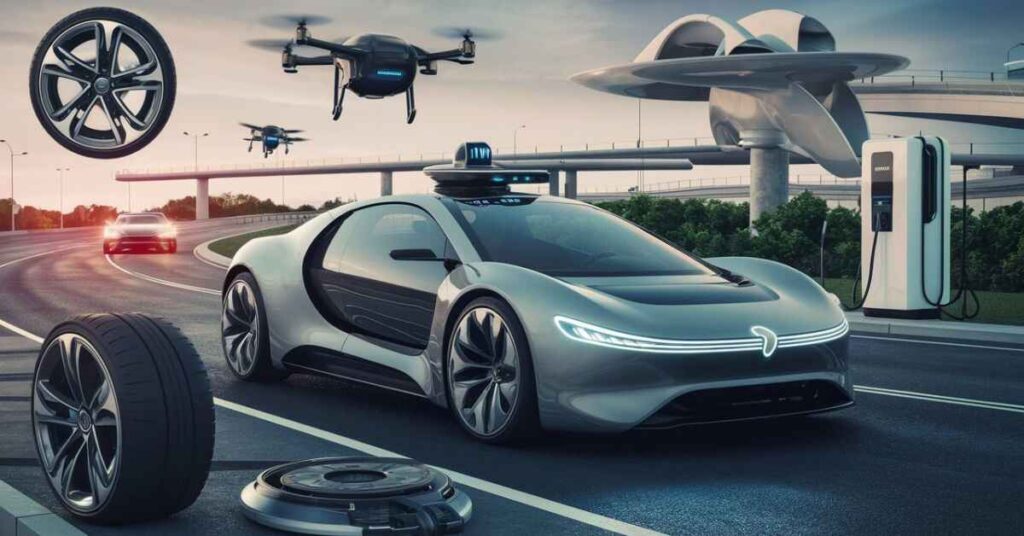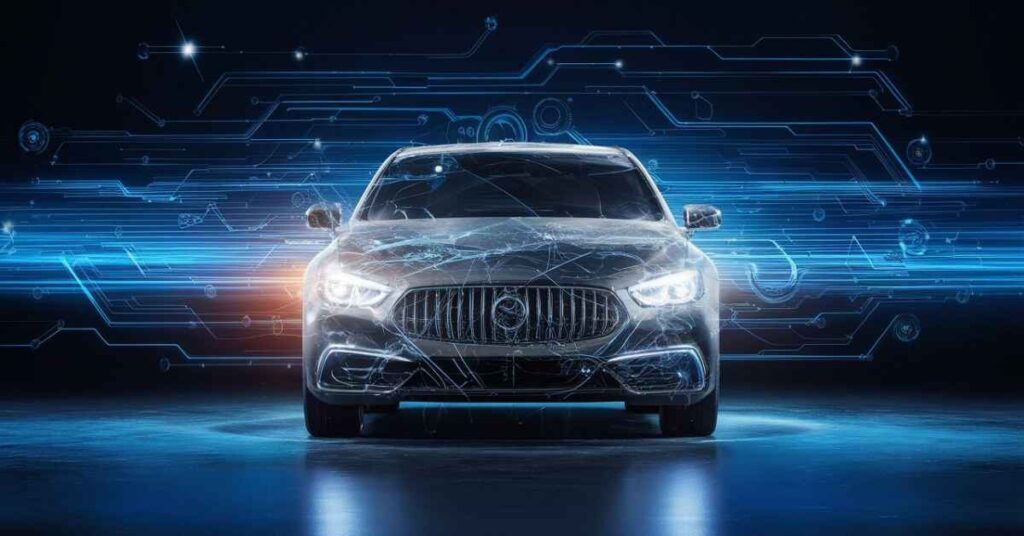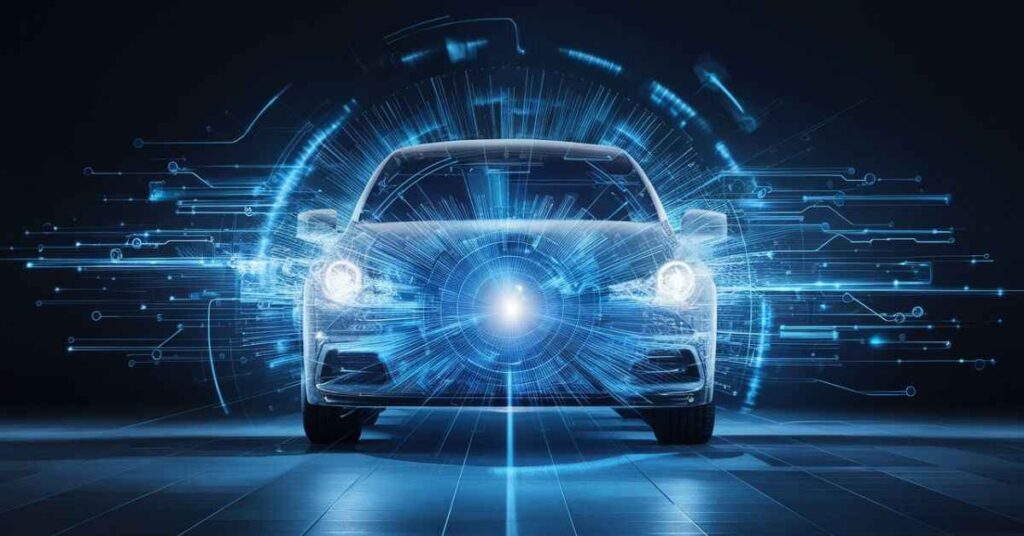
Before exploring the function of AI and automation, it’s essential to understand the basics of automobile generation. At its core, automotive technology includes the design, development, production, and operation of vehicles, including cars, trucks, buses, and motorcycles. This complex field involves various disciplines, such as engineering, electronics, materials science, and computer technology. The Role of Artificial Intelligence and Automation in Automotive Technology.
The primary functions of automotive technology include:
- Electronics and Embedded Systems: Integrating complicated digital systems and software programs into automobiles for features like engine manipulation, infotainment, and motive force assistance.
- Manufacturing: Employing advanced production processes, robotics, and automation to assemble vehicles efficiently and precisely.
- Electronics and Embedded Systems: Integrating complicated electronic systems and software programs into cars for engine management, infotainment, and driver help.
- Diagnostics and Repair: Leveraging diagnostic gear and techniques to become aware of and solve car troubles, ensuring their sturdiness and reliability.
The benefits of modern automotive technology are numerous, including:
- Increased Safety: Advanced driver help systems, collision avoidance technologies, and stepped-forward structural designs beautify automobile safety.
- Fuel Efficiency: Optimized aerodynamics, lightweight materials, and inexperienced powertrain technologies contribute to higher gasoline economy and decreased emissions.
- Comfort and Convenience: Features like weather control, infotainment systems, and superior motive force interfaces improve the general driving experience.
AI’s Emerging Role In Automotive Technology
AI is rapidly permeating various aspects of the automotive industry, from design and research to manufacturing and vehicle operations. Here are a few key regions in which AI is creating a significant effect:
Design and Research & Development
- Computer Simulations: AI-powered imitations are used to test and optimize vehicle designs, reducing the need for physical samples and accelerating the development process.
- Computational Fluid Dynamics: AI algorithms examine airflow styles around digital vehicle models, improving aerodynamics and fuel efficiency.
- Generative Design: AI algorithms explore countless design possibilities, generating optimized vehicle components based on specific performance criteria. The Role of Artificial Intelligence and Automation in Automotive Technology.
Manufacturing
- Predictive Maintenance: AI systems screen equipment data and predict whilst renovation is required, minimizing downtime and maximizing productivity.
- Quality Control: Computer vision and AI algorithms inspect components and vehicles for defects, ensuring high-quality standards.
- Supply Chain Optimization: AI analyzes delivery chain records, optimizing stock levels, shipping routes, and logistics operations.
Vehicle Operations
- Autonomous Driving: AI is at the coronary heart of self-riding car generation, enabling motors to understand their surroundings, make choices, and navigate safely without human intervention.
- Advanced Driver Assistance Systems: AI-powered ADAS capabilities, such as lane-maintaining help, adaptive cruise management, and collision avoidance structures, beautify driving force protection and comfort.
- Predictive Vehicle Technology: AI algorithms analyze real-time records from sensors and historical statistics to expect ability troubles and advise preventive protection.
The Automation Advantage

- Increased Productivity: Automated meeting traces and robot systems can function constantly, 24/7, without breaks or fatigue, considerably growing output.
- Improved Quality and Consistency: Robots perform repetitive tasks with high precision, reducing the risk of human error and ensuring consistent quality across all vehicles.
- Enhanced Worker Safety: Automation removes the want for human involvement in risky tasks, inclusive of welding, portraying, or dealing with heavy additives.
- Flexibility and Scalability: Automated systems can be easily reconfigured to accommodate changes in production volumes or adapt to new vehicle models. The Role of Artificial Intelligence and Automation in Automotive Technology.
Frontiers of AI/Automation in Automotive
The future of the automotive industry is inextricably linked to the continued advancement of AI and automation technologies. Here are some cutting-edge developments shaping the industry:
Self-Driving Vehicle Systems
- Major automobile corporations and technology giants are racing to develop self-maintaining vehicles able to navigate complicated city environments without human intervention.
- AI algorithms method facts from diverse sensors (cameras, LiDAR, radar) to perceive the environment, make selections and control the automobile.
- Significant worrying conditions stay, which include making sure of safety, addressing moral dilemmas, and putting in regulatory frameworks.
Predictive Vehicle Technology
- AI systems analyze real-time data from sensors, historical maintenance records, and usage patterns to predict potential issues and recommend preventive maintenance.
- This proactive approach can extend vehicle lifespan, reduce downtime, and improve overall reliability.
Smart Traffic Management
- AI and Internet of Things technologies are being integrated into transportation infrastructure to optimize traffic flow, reduce congestion, and improve safety.
- Connected vehicles can communicate with each other and with smart traffic signals, enabling real-time route adjustments and coordinated traffic management.
The Future Automotive Workspace
The integration of AI and automation is not only transforming vehicles but also reshaping the automotive workforce. Traditional roles are evolving, and new opportunities are rising:
AI Specialists and Data Scientists
With the increasing reliance on AI and data analytics, there is a growing demand for professionals skilled in developing and deploying AI models, algorithms, and data-driven systems.
Robotics Engineers and Technicians
Automation and robotics require specialized expertise in designing, programming, and maintaining these complex systems, creating new job opportunities in the manufacturing sector.
Software and Embedded Systems Engineers
The prevalence of software and electronics in modern vehicles necessitates professionals skilled in developing and integrating advanced software systems, including those for autonomous driving and connected car technologies.
Cybersecurity Experts
As vehicles become increasingly connected and reliant on digital systems, ensuring the security of these systems from cyber threats is paramount, creating a need for cybersecurity professionals in the automotive industry.
FAQs
Ans; AI enhances vehicle capabilities by enabling features like autonomous driving, predictive maintenance, and smart navigation systems.
Ans: AI enables advanced driver assistance systems (ADAS) that can detect hazards, assist with emergency braking, and provide alerts to prevent accidents.
Ans: Benefits include improved safety, reduced traffic congestion, increased fuel efficiency, and enhanced accessibility for people with disabilities.
Ans: Challenges include regulatory hurdles, ethical considerations, cybersecurity risks, and the need for extensive testing and validation.
Ans: Future advancements may include fully autonomous vehicles, personalized driving experiences, seamless vehicle-to-vehicle communication, and enhanced cybersecurity measures.






